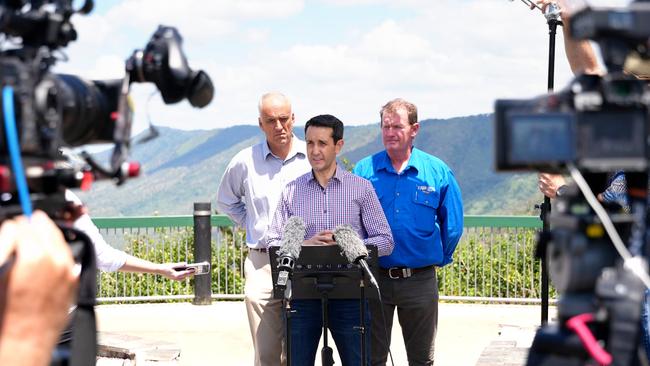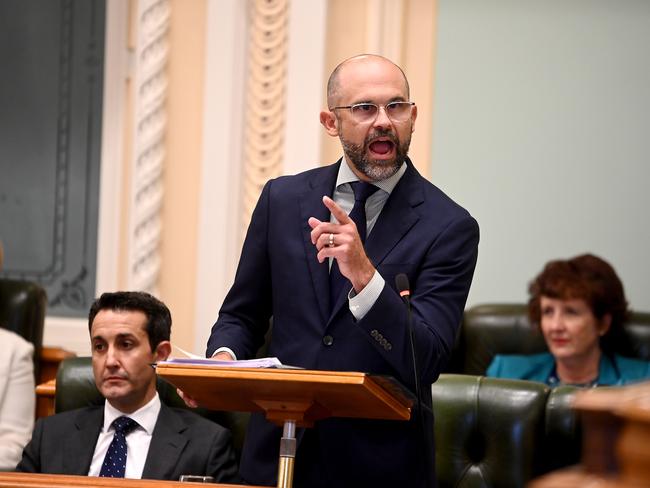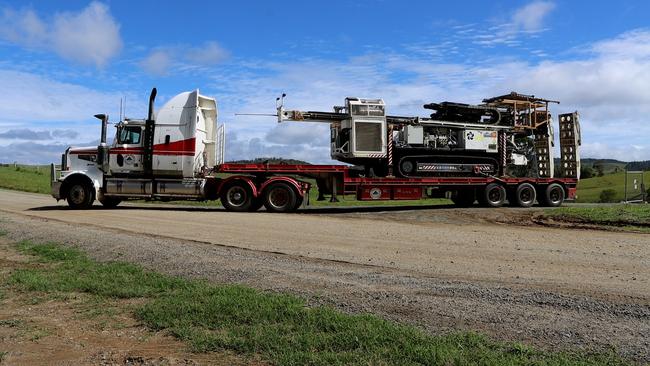Pioneer-Burdekin cancellation leads to 60 per cent power price jump by 2035: Cornwall Insight
New modelling predicts Queenslanders will pay a significantly higher cost for electricity by 2035 without a replacement for a scrapped major project.

Mackay
Don't miss out on the headlines from Mackay. Followed categories will be added to My News.
Wholesale power prices will soar by more than 60 per cent without a replacement for the scrapped Pioneer-Burdekin pumped hydro scheme, according to modelling.
UK firm Cornwall Insight claims without a way to store the planned renewable energy coming to market by 2035, price spikes will be more severe in Queensland as coal and gas are needed in higher volumes.
The company’s forecasts suggest wholesale prices will remain at least 40 per cent higher annually through to 2040, which would lead to higher power bills for homes.
Thomas Fitzsimons, senior modeller, Cornwall Insight, said the prediction was “not surprising” since the modelling previously assumed the ability to store significant amounts of energy in Queensland.
“The extensive renewable generation capacity expected to be in place by 2035 can be less efficiently utilised by the model, making price peaks more difficult to smooth as the model leans more heavily on more expensive thermal generators to meet demand,” Mr Fitzsimons said.
“Without alternatives to the 120GWh of storage the project promised, we face a future of elevated power prices, which could impact households and businesses alike.
“With 10 years’ advance notice this increase in prices — rather than a cause for alarm — serves as a market signal that storage of some kind will be needed in Queensland by this time.”

The modelling would change if new projects were announced giving clarity in the market for alternative renewable energy storage, whether it was pumped hydro or battery energy storage systems (BESS).
“BESS facilities can be installed almost anywhere, are quicker and simpler to build, and are increasingly cheap, with some eight-hour capacity facilities already in development in the NEM,” Mr Fitzsimons said.
“As regards nuclear energy, we are aware of the federal Coalition’s proposals to replace legacy thermal units with nuclear power stations but, since the current legal framework would need to be changed to allow this, this is not yet a credible scenario for us to model.”

The LNP government repeatedly emphasised it would replace Pioneer-Burdekin with “smaller, more manageable” pumped hydro during the election, but was unable to give any specifics when asked where or what these projects would be.
It has now been in power since October.
The Daily Mercury asked premier David Crisafulli and energy minister David Janetzki whether the government had come up with any alternative pumped hydro programs to replace the outgoing Pioneer-Burdekin, and whether they believe Queenslanders should pay 60 per cent more for their power prices.
A spokeswoman for Mr Janetzki said the Crisafulli Government is committed to “delivering a roadmap for an energy mix that is affordable, reliable and sustainable”.
“As we promised, we are actively engaging with Queensland Hydro, industry and the community on smaller pumped hydro projects.”
Queensland Hydro previously assessed other pumped hydro sites identified in studies for their potential.
A spokesman for Queensland Hydro said there are no investigations currently being undertaken on those sites, and confirmed it is not currently considering any private-market proposals.





